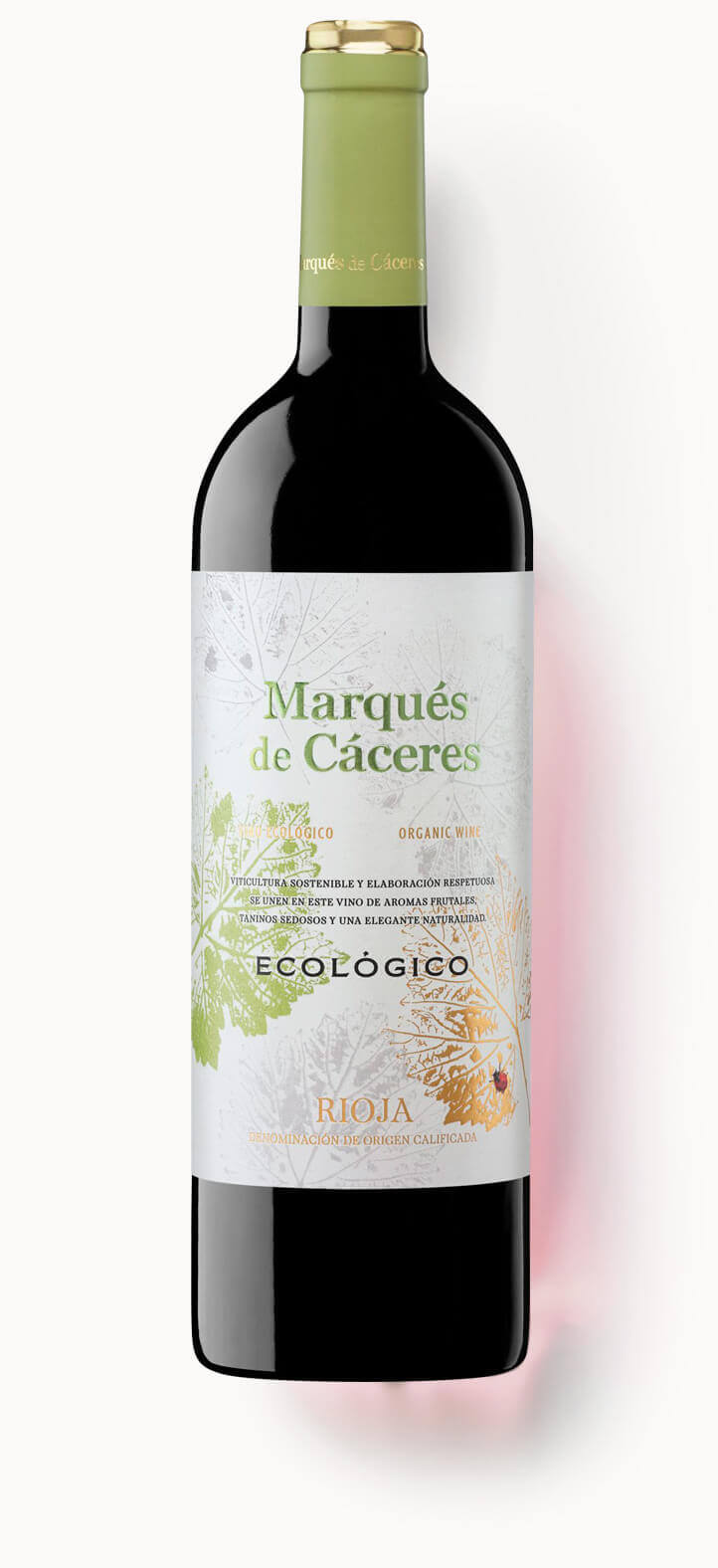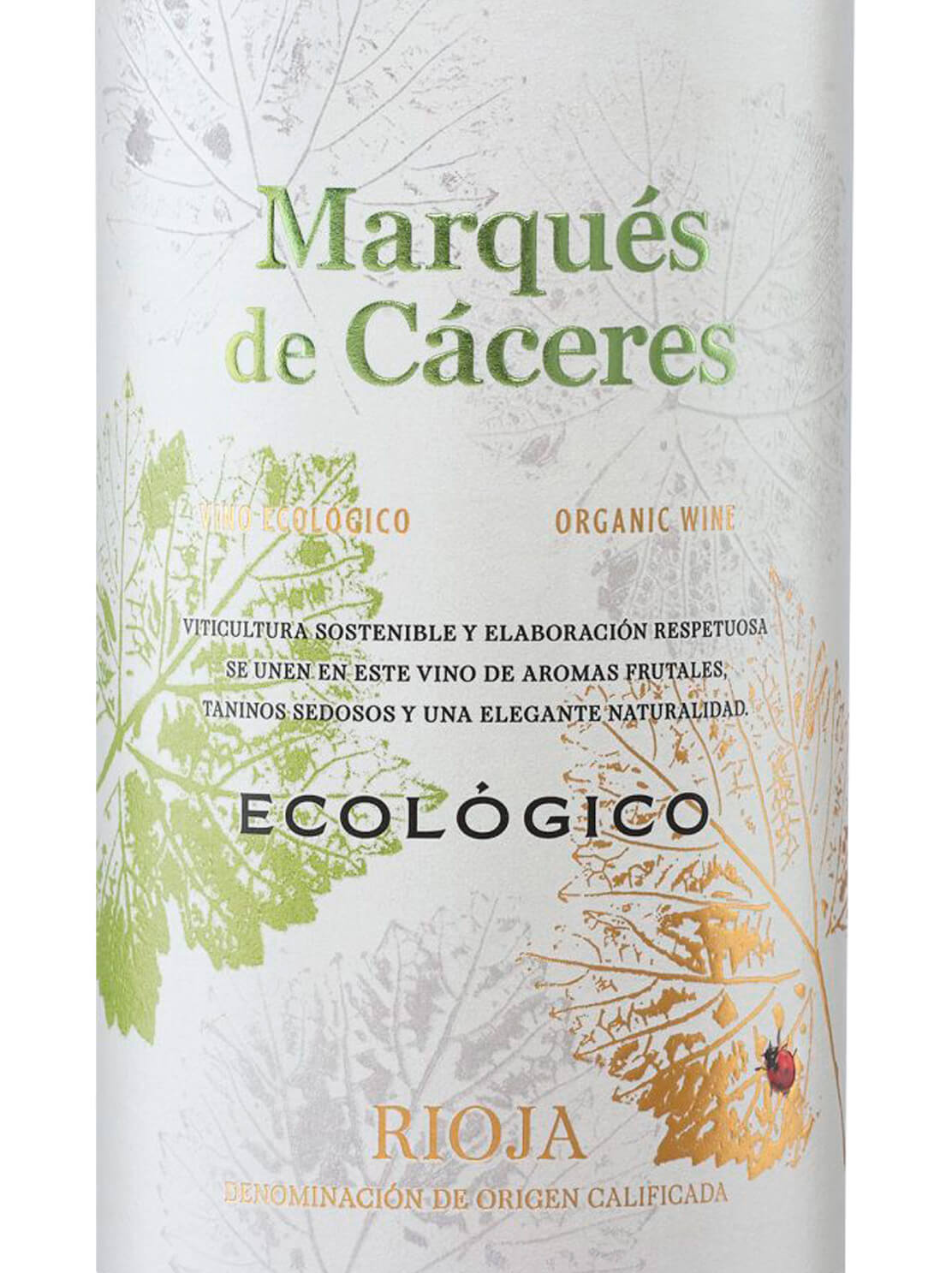A tu manera genuina

Ecológico
Marqués de Cáceres
2023
D.O.Ca Rioja
Variedades
Tempranillo y Graciano
Enólogos
Fernando Costa, Emilio González y Manuel Iribarnegaray
Graduación / Servicio
13,5% vol. / 13-14º C
Fruta viva
Naturaleza sabia
Color rubí con destellos vivos y ribetes violetas. Nariz compleja donde fusionan los frutos rojos con toques de regaliz, delicadas notas anisadas y especiadas. Graso y redondo en boca, su frescor y su juventud alegran la cata con paso suave.
La fruta viva persiste en boca para brindar una experiencia divertida, fresca, recogiendo así la pura expresión de una naturaleza sabia, protegida por su cultivo ecológico.

Cultivo ecológico
El cultivo ecológico determina y condiciona las herramientas para el control sanitario del viñedo. Hay que combinar el manejo manual de la vegetación con un uso de soluciones tradicionales. Herramientas como el refuerzo de defensas propias de la planta, empleo de sustancias biológicas y abonos naturales, tratamientos con minerales presentes en la naturaleza (azufre, cobre, silicio,..), uso de extractos de plantas en maceración o incluso la difusión de hormonas sexuales en el ambiente para impedir el apareamiento de insectos como la polilla de la vid, etc…
Clima dominante
Atlántico, de tipo templado, con estaciones diferenciadas.
Suelos
Los viñedos de los que proviene este vino se asientan en suelos antiguos, de origen aluvial, cascajosos, con excelente drenaje y aireación. Generalmente todos los años se cultiva bajo cubierta vegetal, es decir, dejando crecer en las calles del viñedo la vegetación espontánea, provocando un menor vigor y desarrollo de la viña por competencia. Una vez cortada esta vegetación sirve a su vez de nutriente y elemento equilibrador del suelo cuando es enterrada en el viñedo al final de su ciclo anual de crecimiento.
Viñedos y rendimientos
13 hectáreas con producciones por debajo de la media habitual en la zona.
Vendimia
Totalmente manual, en cajas de 15 kg.
Vinificación
En pequeños depósitos de acero inoxidable. Las uvas pasan por mesa de selección y una vez despalilladas van a depósitos. Se mantiene la uva entera en la fermentación alcohólica que se realiza a temperatura baja con maceración relativamente corta para conseguir una estructura amable y viva expresión frutal. Una vez la fermentación termina, el vino se descuba y se prensa. Todo el proceso de elaboración de este vino se realiza en pocos movimientos para preservar la fragancia natural del vino. Además de por un canal totalmente distinto al resto de la elaboración convencional.
Tiempo total en barrica
3 meses de barrica de roble americano de segundo uso.
Afinado en botella
5 meses de botella antes de su comercialización.
workspace_premium Premios
2020
Guía Gourmets 2022 86 puntos
2019
Guía Gourmets 2021 86 puntos